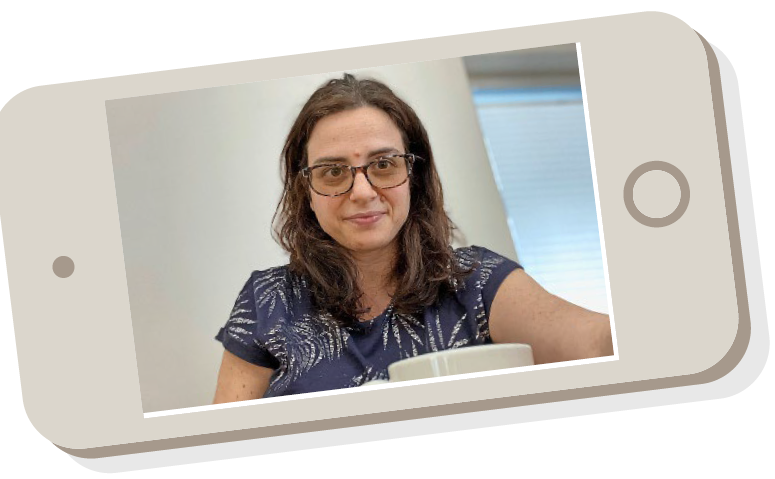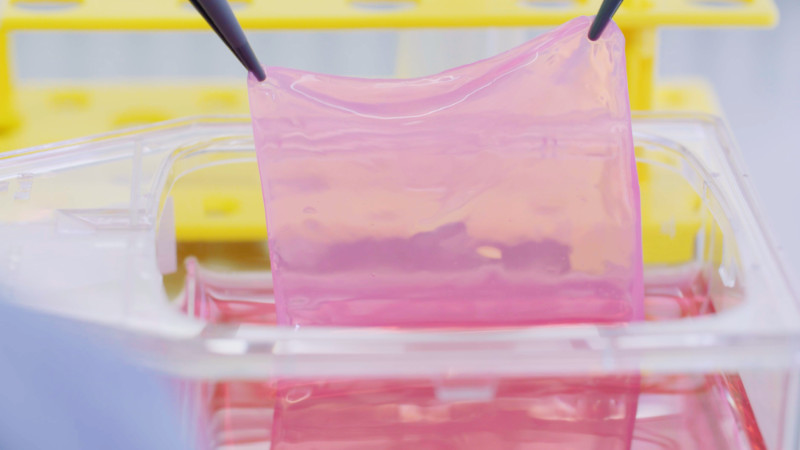Coffee with…Daniela Marino
Article in the Swiss Economy Magazine ‘Finanz und Wirtschaft’ (Saturday, 21 March 2020)
Daniela Marino likes her espresso macchiato hot and strong. The company she runs, Cutiss, is also in a hot phase. Due to time constraints, the CEO, who is originally from Italy, usually drinks her coffee at the office, which is located near the University of Zurich. That’s where Cutiss’ human skin production technology was originally developed.
Worldwide, at least fifty million people suffer from large-scale skin injuries every year. The standard treatment today is to take skin from a healthy part of the body and place it on the injured area so that it grows back and closes the wound. Thus, an additional injury is created, which can also leave its scars. This is where the Cutiss procedure is supposed to provide a step forward. Only a small skin biopsy needs to be taken. It is taken apart in the laboratory, the cells obtained from it are reproduced and then combined with a collagen hydrogel to form a new type of skin substitute. Cutiss is thus in a similar category to manufacturers of cell therapies, in which body cells are also removed, manipulated and reintroduced.
In a Phase I study, denovoSkin was successfully tested for safety in ten patients at the Children’s Hospital of the University of Zurich. Swissmedic, the EU’s Medicines Agency (EMA) and its US counterpart, the FDA, have granted denovoSkin orphan drug status. This would mean that the product would enjoy longer market protection and could also be approved more quickly.
First, however, Phase II studies are needed in which the laboratory-produced skin is tested not only for its safety but also for its efficacy. These studies are already underway in Switzerland and the Netherlands. They are expensive and are expected to last until 2022, so Marino is looking for additional funding worth CHF 30 million, she says, adding that some existing shareholders are willing to participate in the capital increase. “But we are also looking for new shareholders, and we especially need a long-term anchor investor who would contribute several million and support our vision,” Marino explains. The 38-year-old studied biotechnology in Milan and completed her doctorate at the ETH. As part of a post-doctorate at the University of Zurich, she then worked with the Tissue Biology Research team on the cultivation and production of personalized skin. After initial studies on humans turned out positive, it made sense in 2017 to found a start-up for further development.
The work in the lab is just the beginning. “The breakthrough for this technology will only come when we succeed in automating the manufacturing process,” Marino is convinced. Her company is thus entering the world of mechanical engineering. To this end, she has brought competent partners on board in the form of the engineering company Zühlke and the Centre Suisse d’Electronique et de Microtechnique.
Innosuisse is supporting the development with just under CHF 1 million. Cutiss has already raised a total of CHF 21 million, including CHF 3 million from the European Union and CHF 5 million from Wyss Zurich, the incubator of the University of Zurich and the ETH founded from a donation by Hansjörg Wyss. Cutiss thus moves between biotech, surgery and process automation. “That doesn’t make it any easier for us to find investors,” Marino admits. But she is confident that she will soon have the necessary funds together. This is despite the fact that the current situation surrounding the coronavirus is also causing investors to be cautious.
If the results of the Phase II trials are good, Cutiss could already submit a marketing authorization application for denovoSkin. The green light from regulators could follow about a year later. Primarily, burn victims would benefit. In addition, reconstructive surgery after other accidents or, for example, reconstructive surgery to remove a large mole would also be important. According to Cutiss’ estimates, this alone would represent a market (Europe and the USA) of CHF 2 billion.
In contrast to existing products, Cutiss’ skin is thicker, consists of the patient’s own cells and contains both a dermal and an epidermal skin layer, allowing it to attach better and wounds to heal better. This also leads to less scarring. This is a factor that should not be underestimated, because many patients suffer psychologically for the rest of their lives from disfigurement caused by their injuries and subsequent treatments.
The greatest challenge for Marino is the upcoming growth spurt of her company, which currently employs twenty people. The company’s own research and development center and a production facility are being built in the Biotechnopark in Schlieren. “We still need at least ten new employees,” says Marino. She has long since finished her espresso macchiato. She looks at her watch and says a friendly goodbye.
Text: Rupen Boyadjian
Coffee with…Daniela Marino Read More »


